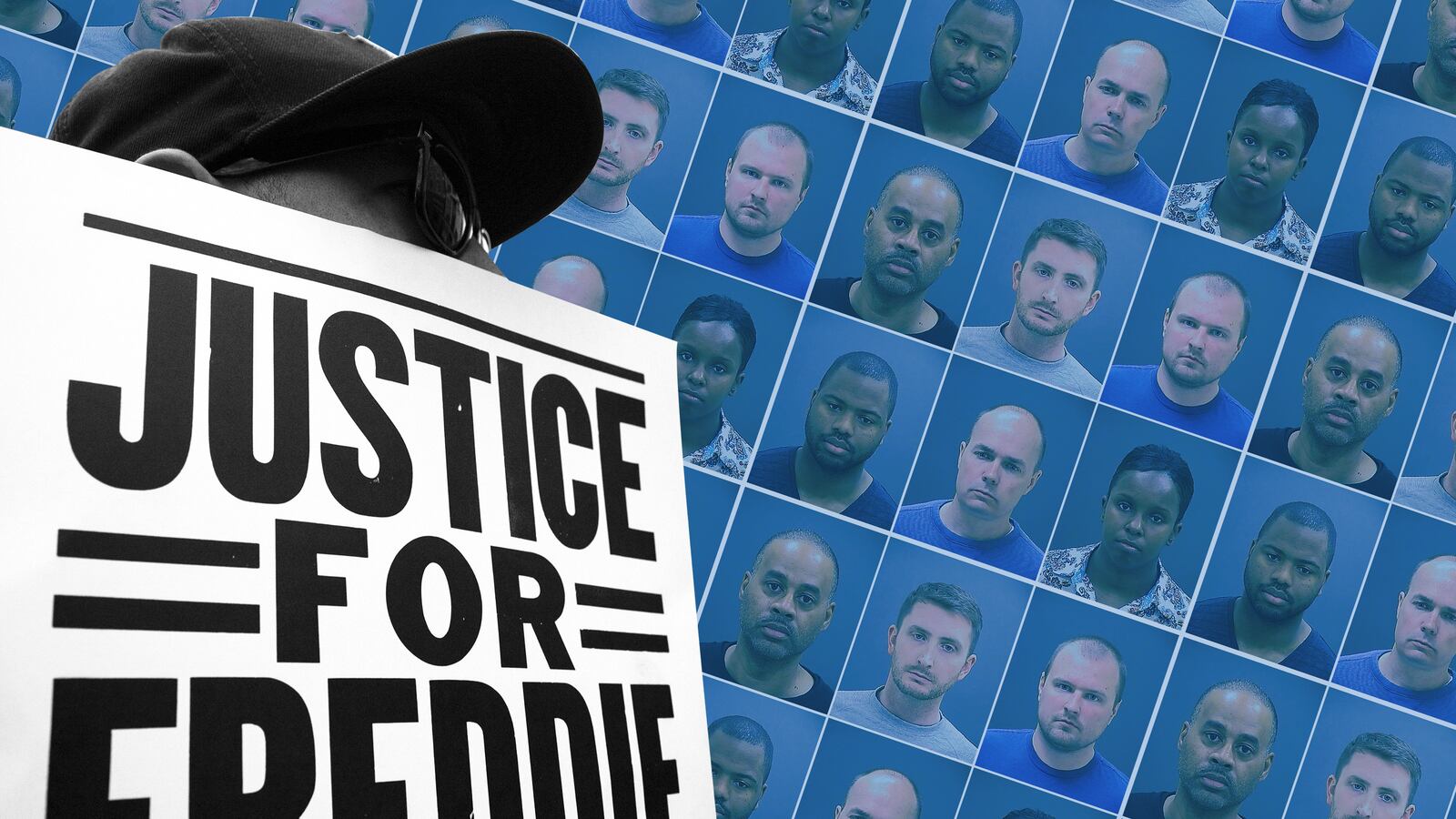Has Marilyn Mosby seen Freddie Gray’s knife?
Mosby, the Baltimore state’s attorney, charged three police officers with unlawfully arresting Gray for possession of a “knife commonly known as a switchblade.”
“The knife was not a switchblade and is lawful under Maryland law,” Mosby said Friday as she presented a statement of charges against six police officers to a restless city.
“Lt. Rice, Officer Miller, and Officer Nero failed to establish probable cause for Mr. Gray’s arrest, as no crime had been committed by Mr. Gray,” she said.
Mosby correctly notes the “knife was not a switchblade”—but police never said it was.
“The knife was recovered by this officer,” Officer Garrett Miller wrote in the arrest report, “and found to be a spring-assisted, one-hand operated knife.”
Spring-assisted knives open on their own after a small push on the blade by a finger, unlike switchblades, which shoot out with the press of a button.
Despite their differences, they’re both illegal in Baltimore.
“It shall be unlawful for any person to sell, carry, or possess any knife with an automatic spring or other device for opening and/or closing the blade, commonly known as a switch-blade knife,” says Article 19, Subtitle 59, Section 19 of the Baltimore City Code.
So the knife described by Miller is most definitely illegal, but of course he could be wrong.
But we can’t know for sure because we can’t see it ourselves. The police won’t comment on the weapon’s location, nor will Mosby. In a statement released Tuesday afternoon, Mosby said she would not discuss the evidence gathered in her case against the six cops.
“While the evidence we have obtained through our independent investigation does substantiate the elements of the charges filed, I refuse to litigate this case through the media,” Mosby said. “The evidence we have collected cannot ethically be disclosed, relayed, or released to the public before trial.”
But did Mosby and her team of investigators even inspect the knife before declaring it was legal and the arrest of Gray was illegal? If the knife was inspected by them, and it contains the spring Officer Miller claims, then Mosby might have misinterpreted what is defined as a “switchblade” and what is illegal under Baltimore’s ordinance.
“The State baldly asserts that ‘the knife was not a switchblade knife and is lawful under Maryland law,” wrote Officer Edward Nero’s attorney, Marc Zayon, in a motion Tuesday to request a viewing of the knife. “The State further suggests that the Defendant ‘failed to establish probable cause for Mr. Gray’s arrest as no crime had been committed.’”
(“Maryland law,” in Mosby’s words, is irrelevant to the legality of Gray’s arrest because the only charge—the only stated reason he was handcuffed and put in the back of that police van—was a violation of Baltimore Code Art. 19, § 59-19.)
Zayon said an inspection of the knife would prove that it was “not lawful” and that “as such, [Nero and the other officers] did not illegally arrest Mr. Gray.”
It’s possible the police report is wrong, that Officer Miller was incorrect in his description of the knife. It’s also possible that Mosby hasn’t seen the knife or that she ignored the city statute that makes it illegal. We won’t know until we see the knife.
Larry Kobilinsky, a professor of forensic science at New York’s John Jay College of Criminal Justice, believes Gray’s knife could make or break Mosby’s case.
“I think it makes a lot of difference if the arrest was legal,” Kobilinsky said. “If they took him into custody and had reasonable suspicion that a crime had been committed, then they acted reasonably in restraining him and taking him to jail.”
Furthermore, by saying the arrest was illegal, Mosby has made the case to the public that cops should have never begun what ended with Gray’s death. Cops surely had no right to kill Freddie Gray, but they may have had the right to arrest him. All of that—and what happens next in Baltimore—may now hinge on a single spring.






